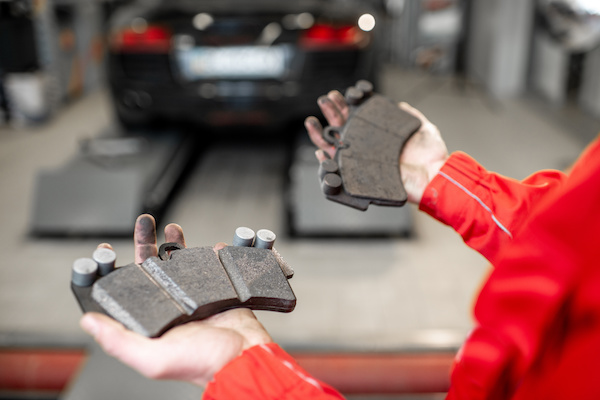
A vehicle's brakes are among its most essential components. You must inspect the effectiveness of your brakes to ensure your safety and the safety of others on the road. On average, brake pads require replacement every 50,000 miles. Some will need to be replaced after 25,000 miles, while others may endure for 70,000 miles.
Factors affecting the brake pad's durability
Driving habits: Brake pads' lifespan is significantly influenced by how hard a driver presses the brake pedal.
Environment: Driving in the city puts more strain on the brakes than driving in the country or on long, straight highways since there are more stop-and-go traffic and traffic lights.
Brake pad hardness: Vehicle brake pads come in various compositions to meet multiple driving requirements. Most high-performance cars have hard compound brake pads, which are more durable but take longer to warm up before they work properly.
Materials: Brake durability depends on the rotor and pad materials. Carbon-ceramic brakes last longer than metal brakes but need time to warm up for them to work.
Signs that it's time to change your brake pads
Even though manufacturers recommend a certain mileage for brake pads to be changed, you may need to replace them earlier. Here are five signs that it's time to change your brake pads:
1. Vibrating brake Pedal
If braking your car is challenging, and your brake pedal vibrates or feels shaky as you press down, your brake pads are worn out. Having your vehicle inspected as soon as possible is crucial since a vibrating brake pedal is not normal and might result in even more damage to your car or an accident.
2. Warning light
When your brakes require maintenance, some cars have a warning light on the dashboard to let you know. Since not all vehicles have sensors for brake pads, you should check your owner's manual before relying on this method.
3. Car pulling to one side
While driving your vehicle, if you feel it is pulling to one side or the other, this might be a sign that the brake pads are worn out or that the caliper guide pins or piston are stuck.
4. Grinding metal sound
A grinding metal sound is another sign you need new brake pads. Certain brake pads are inserted into the bottom of certain brake pads to generate loud noise and signal the driver to acquire new pads.
5. Slower stop
Loss of braking performance is another clue you need new brakes. If your vehicle stops too slowly, your brake pads may be worn out, your brake fluid may be low, or often due to a leak.
Regular vehicle maintenance reduces stress and saves money. A professional mechanic can spot issues before they worsen, extending your vehicle's life. If you need brake repair, we invite you to bring your vehicle to Portland Automotive today!